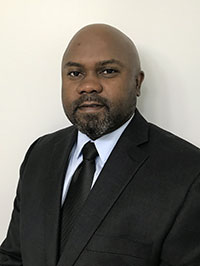IRIS & the Alabama SPDG: One Step Further

It’s becoming increasingly common for schools and districts to use our IRIS professional development resources to help their teachers sharpen their skills or to learn new classroom instructional and behavior practices. In Alabama, however, Curtis Gage and the State Personnel Development Grant decided to take their professional development training a step further and include a group we had not anticipated: Parents and families.
What began at first as an attempt to broaden the reach of the state’s PD efforts related to secondary transition for students with disabilities—from professional development coordinators to secondary educators—soon took on a life of its own. With the support and assistance of the SPDG’s Susan Williamson, Mr. Gage became “adamant” that his state’s secondary teachers receive adequate training on evidence-based practices to help students to transition out of high school into further education, community involvement, or employment. To do so, he and the SPDG elected to use the IRIS School & District Platform, an online tool that would allow them to track teacher progress as they worked through the IRIS Modules on transition and ensure that they were able to earn PD certificates as well. The results were more than promising, with Mr. Gage reporting a noticeable shift in teacher classroom practices: Not only were Alabama’s educators working through the IRIS Modules, they were implementing the information they learned into their everyday instruction.
The State Personnel Development Grant decided to take their PD training a step further and include a group we had not anticipated: Parents and families.”
The next step: Parents. The parents, guardians, and families of students involved in the secondary transition process are uniquely positioned to guide and assist those young people as they face the choices associated with early adulthood. And it was here that the Alabama SPDG hit on another innovation. They asked one of their parent focus groups to work through the IRIS transition modules, as well. This not only had the potential to illuminate evidence-based transition practices but it also increased the opportunity for educators and parents to work together as active partners to create better, smoother, more effective transitions. Mr. Gage reports that the parents enthusiastically embraced the modules, comparing them favorably to previous materials used in their focus groups, and praising the modules’ user-friendly design and intuitive navigation options.

We’re excited to see what Mr. Gage and the Alabama SPDG—to say nothing of other schools and districts—come up with next. To learn more, click the audio link to hear this story in Curtis Gage’s own words (time: 2:31)
Curtis Gage
Transition/Collaborative Education
Alabama Department of Education
Special Education Services/State Improvement Grant
Well, we wanted to give those secondary teachers a variety of training. Initially I went out with the special education coordinator and provided training on transition. But we wanted to increase their knowledge about evidence-based practices, the other type of practices, and collaboration that other systems are using. And so we thought that it would be a good idea that, in addition to the professional development that either I was providing or one of my colleagues was providing statewide and then, particularly in those systems, we thought that those teachers would benefit from the modules on the IRIS website.
And so there was a lot of conversation, a lot of e-mails, a lot of meetings to determine which modules and how many modules their teachers would complete. And then there was discussions about which teachers, will it be system wide or will it be those teachers who actually teach those students with disabilities in secondary transition? And I know we were adamant about all the teachers receiving that PD that the IRIS Center offered. We wanted to make sure that the teachers were actually completing the modules and we wanted to provide them with a certificate so they can get CEUs for their renewal of particular certifications that they may have.
And then after the completion of the modules, they meet and talk about the modules and give feedback on things that they learned, things they want to try based upon the module. So instead of them just watching the module and printing off the certificate, coordinators met with the teachers and had discussions about the module.
As far as our state personnel development grant, we’ve had parent focus groups and within those focus groups we’ve asked those parents to watch the modules as well. And they were very, very pleased with the modules. They said they learned a lot, it was really user friendly, and they liked how you can go back and review the modules. And, to be honest, the majority of them, they said they really enjoyed it, they learned a lot, as opposed to the previous grant. So we had some repeat parents that participated in a parent focus group and they enjoyed the IRIS Center much better.